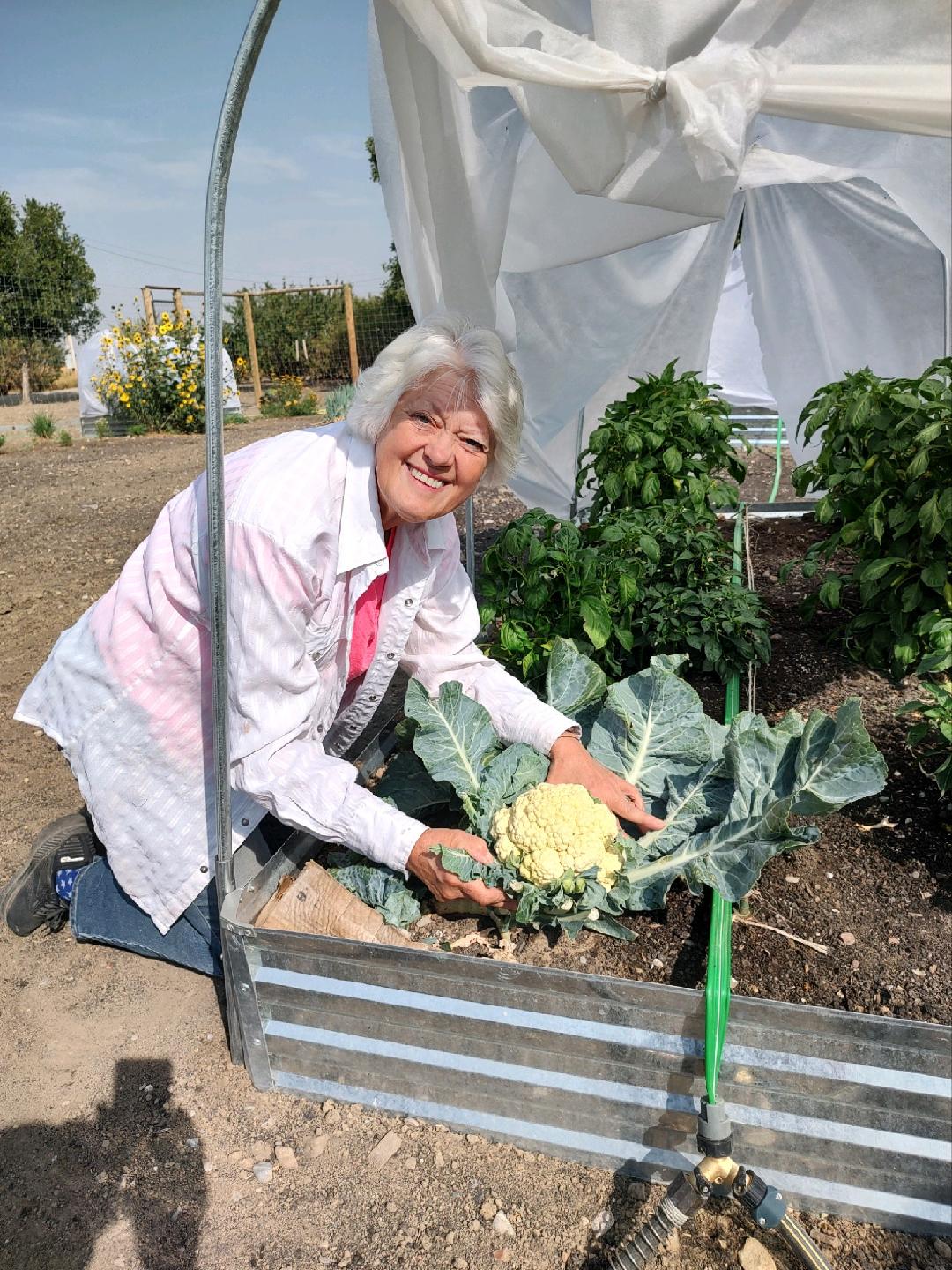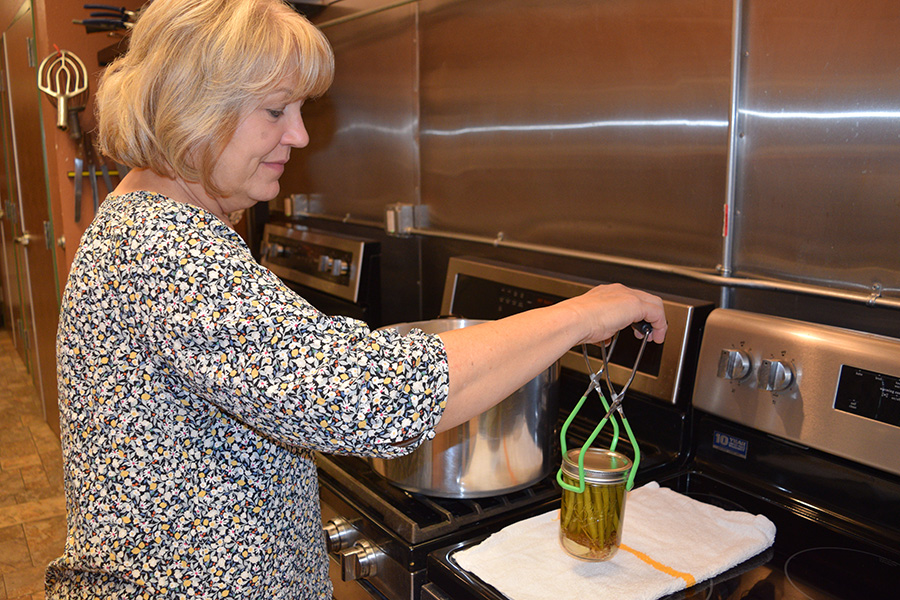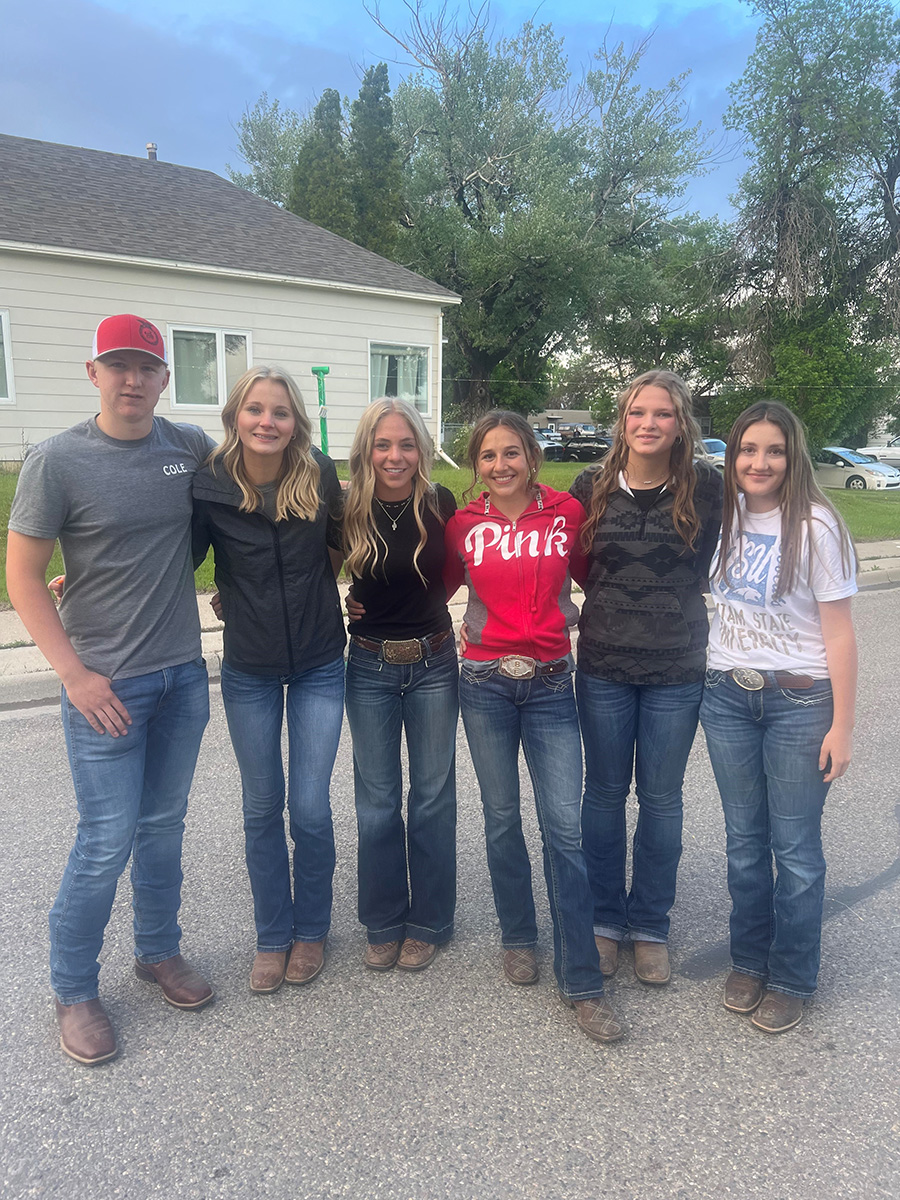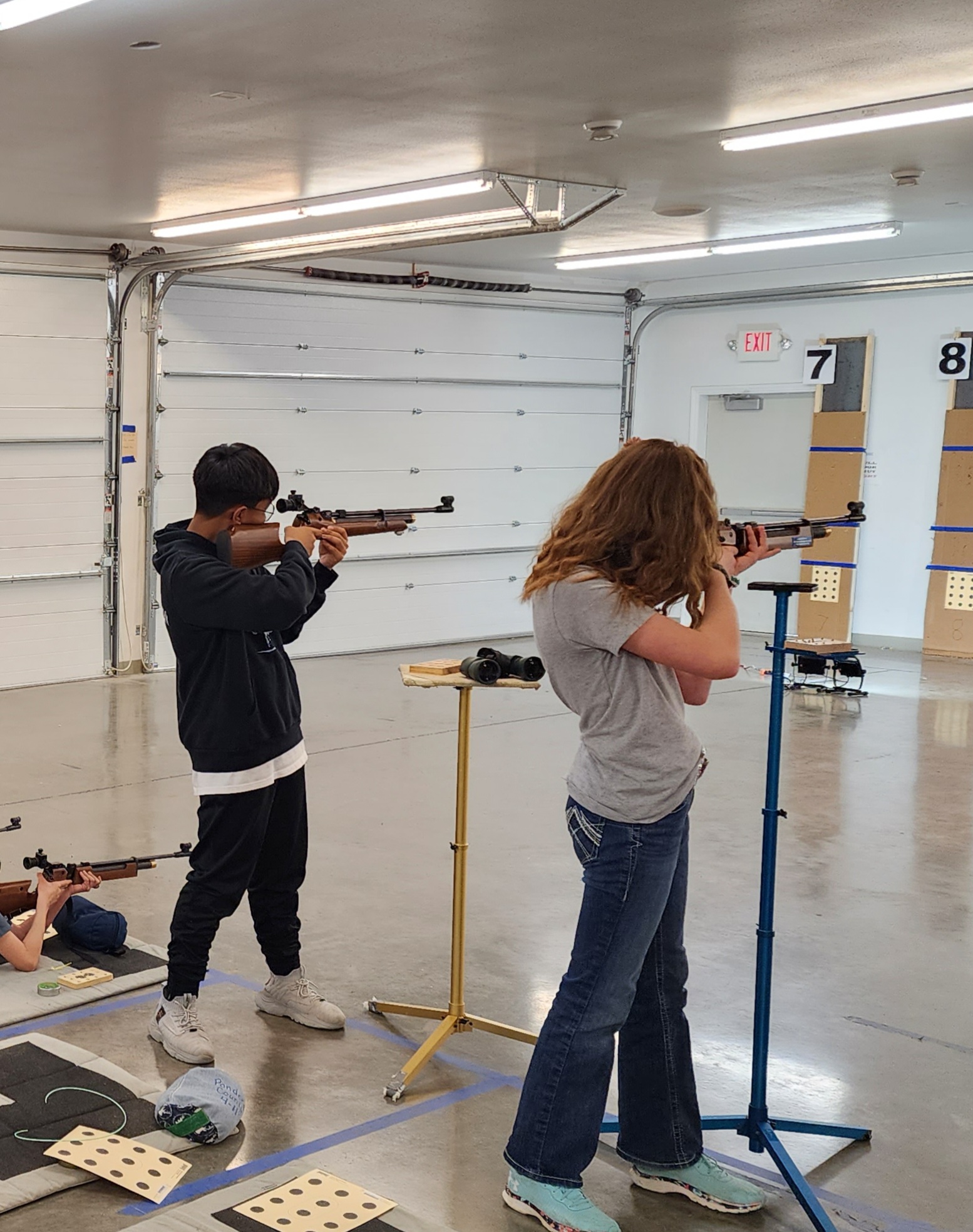Pondera County
2023 MSU Extension Highlights
2023 MSU Extension Highlights
Pondera County is on the western edge of the Golden Triangle, famous for quality wheat and barley production. This rural county covers 1625 square miles and has approximately 6400 residents in the communities of Conrad, Valier, Dupuyer, Brady, and Heart Butte. The elevation varies from 3300' on the eastern plains to 8500' at the Continental Divide. Major watersheds include the Marias and Teton River drainages. Lake Frances near Valier is fed from Swift Reservoir and is a major supplier for irrigation and household water. The Tiber water system on the Marias River serves 270 households, using water impounded at Lake Elwell. There are approximately 950,000 acres in farmland, including pasture, irrigated and dry land. Crops include wheat, barley, pulses, oilseeds, and hay. Cattle and sheep are important agricultural products along with hogs, poultry, eggs and produce from five Hutterite Colonies. Health facilities and retirement homes are important economic contributors in Pondera County. The Logan Health - Conrad Medical Center is a modern facility and serves a multi-county area with an economic impact of over $12 million.
Agriculture & Natural Resources
Lettuce Grow Together - Home Gardening
Hunger in America (2021) reported 1 in 12 adults and 1 in 7 children face hunger in Montana. This represents 90,220 adults and 31,010 children or about ten percent of Montana’s population. The 2020 Census data showed 670 people in Pondera County were food insecure. Of that population, 71% were below the Supplemental Nutrition Assistance Program (SNAP) poverty threshold (Hunger in America, 2021). The October 2022 Montana State University Extension (MSUE) Statewide Needs Assessment report data showed that 85.8% of survey participants said the issue of Affordable food options is “extremely important” or “very important” and was ranked fifth. Survey participants were asked to rank specific MSU Extension programs they would attend. The survey results ranked Home Gardening as the number one topic to attend. In January 2023 MSU Extension Pondera County was awarded a MSUE Needs Assessment grant to develop a workshop series to address food insecurity called Lettuce Grow Together. Lettuce Grow Together was a combination of Home Gardening and Food Science workshops. The workshops taught skills on growing nutritious vegetables and food preparation and preservation techniques. The eleven participants who signed up for the course ranged from beginners to experienced growers and food preservers. Starting in April, bimonthly workshops focused on gardening topics began. The gardening topics included home gardening skills, soil testing, fertilization and irrigation techniques, integrated pest management, soil health, safe pesticide and herbicide handling, and sprayer calibration. The project partnered with the Conrad Community Garden for expertise, knowledge, and access to land for teaching space. The community garden area provided a space for mental relaxation, learning, and a gathering place for the participants to network and explore new ideas. We also partnered with a local business, Marias Greenhouse, for their expertise, knowledge, and potting equipment. The grant funds were used to purchase germination chambers, seeds, supplies and equipment loaned to the participants during the series. The participants grew a wide variety of vegetables from Bok choi to Zucchini and more. The class sold vegetables, catnip, and plants as a fundraiser at the local Farmers Market to replenish supplies for next year's class. The goal of the workshops was to enhance food security by teaching the skills needed to grow, prepare and preserve nutritious, homegrown vegetables. Home gardens buffer against external shocks, such as increases in food prices or supply disruptions. In addition, home gardening supports people and reduces dependence on long-distance food transportation. Furthermore, gardening offers other benefits besides increased access to fresh, nutritious food and lower grocery costs. Complementary benefits include increased physical activity, improved mental health, greater self-reliance, and positive environmental benefits. A mid-workshop evaluation showed that the students like learning from experienced gardeners, the sharing of ideas, and the knowledge and input from everyone involved. One mentioned, “We are able to attend this awesome class to learn about Gardening. Very Fun!” Another participant shared feeling uplifted watching the new garden grow and having something to take care of. Participants shared that they learned the value of keeping a garden journal, will research garden pests before reacting and have gained the confidence to try new ideas. One student stated that they learned the basics of starting a garden and are now on the path of gardening life. Moving forward the last Lettuce Grow Together workshop meets October 12, 2023, with an end-of-the-course potluck social. Final evaluations will be collected and analyzed to see what changes to the curriculum will be needed for future classes.

Caption: Sandi Bartsch, a program participant, shows a cauliflower from her home garden.
Credit: Sandi Bartsch
Family & Consumer Science
Lettuce Grow Together - Home Food Preservation
Classes held in the second half of the Lettuce Grow grant covered knife sharpening, food preparation methods, water bath canning, pressure canning, dehydrating and freezing fruits and vegetables. Classes were designed to develop skills that would help people process the foods they wanted to preserve quickly and safely to avoid potential food borne pathogens. The National Center for Home Food Preservation (NCHFP) reported during the COVID pandemic, people spent more time growing gardens, trying different recipes and trying new methods to preserve the food they grew. NCHFP recorded an increase of 620% in website access and 270% in reque4sts for home food preservation validated recipes from March 202 to 2022. When responding to food preservation calls through the MSU Extension Pondera office some people were asked why they were doing food preservation. Responses included wanting to preserve foods they grew, controlling the amount of sugar and salt, liking the flavor of home canned venison, and lowering their grocery costs. Other calls were requests to learn if the family recipes were safe to use and included a discussion of current safe methods for hot water bath and pressure canning. The increase of social media use and access has led to many self-made and influencer videos on-line describing methods of home canning which are unsafe and not research based. Unless people have learned safe food practices through Extension, they may not know that many of the online videos are unreliable and unsafe. As a result, they unknowingly put their families at risk for a serious food borne illness from botulism. Having sharp knives is helpful in several ways. With a sharp knife it takes less effort and time to accurately cut food before cooking, canning, dehydrating, and freezing. Because the food is easier to cut, a sharp knife also reduces the risk of injury. Participants learned the techniques to sharpen and maintain the edge on their knives with a sharpening stone and a honing steel. In the water bath canning class two thirds of the participants had no canning experience and for some it was the main motivator to sign up for the Lettuce Grow Together program. While making peach salsa, participants used their knife skills to slice, chop, and dice the produce and to hot pack in the jars. Methods for properly heating the jars in hot water, measuring headspace when filling the jars, removing air bubbles, and inserting and removing the jars after the correct processing time were taught. Participants learned about elevation adjustments, processing times, keeping the water boiling, and correct water levels above the jars. They understood the reasons why high acid foods can be water bath canned and all vegetables and meats which are low acid foods must be pressure canned. Questions about open kettle canning and why is it not approved for use due to not having any processing time to remove air from the jar, heating the jar contents for the time period long enough to kill any bacteria that are present and not over tightening the jar which prevents air from escaping and may cause the sealing compound to get squeezed out and not create a seal between the lid and the jar. Participants also learned that researched based recipes are used because they have the correct acidity and time to heat the contents which kills any bacteria that may be present. In the pre-survey, all participants shared they had no experience. For the pressure canning class, participants learned the process for using the pressure canner, hot pack and cold pack methods, about dial gauge and weighted gauge canners and the importance of following the timing guidelines for cool down relative to food safety. All current safety guidelines for water bath canning and pressuring canning were taught. While all participants felt confident in their ability to water bath can successfully, only two people indicated an interest in using the pressure canner in the future. A portion of the grant money was used to purchase water bath canners, pressure canners, canning tools and dehydrators which can be checked out for people to use at home. Additional resources on canning procedures and recipes are available from the MSU Extension Pondera County office, including recipes from approved sources along with resources from the National Center for Home Food Preservation (https://nchfp.uga.edu).

Caption: MSU Alum, Karla Breding removes a jar from the canning kettle during class.
Credit: Wendy Wedum
4-H & Youth Development
Pondera 4-H Ambassadors
Pondera County is home to a thriving group of 4-H Ambassadors. The Ambassador Program gives the opportunity for members to grow their leadership skills as well as learn how to handle extra responsibility. One of the main goals of the Ambassador Program is to organize 4-H activities and to promote 4-H. A prime example of how the Ambassadors accomplished this is by participating in local community events. The Conrad Lions Club hosts “Whoop Up Trail Days” a celebration that consists of a parade and rodeo with the sole purpose of raising money for community projects. However, once the rodeo is over the activities for young adults diminish. Besides having a float in the parade to promote 4-H, the Ambassadors saw this need for a youth event and decided to organize a street dance. Each Ambassador took a major role in organizing the event from talking to the city to the Chamber of Commerce to securing port-a-potties. As with most events, things do not go as planned and we did not have electricity for the Disc Jockey. The Ambassadors used their 4-H leadership skills to delegate and work through the situation. The Street Dance was a major success with over 150 youth from 5 different counties enjoying the festivities. This year's 4-H Ambassador class is bigger and more experienced – it’s exciting to consider what they will accomplish.

Caption: Pondera 4-H Ambassadors take a photo break from setting up the street dance after Whoop Up Trail Days.
Credit: Becky Kujava
4-H & Youth Development
Pondera 4-H Shooters receive NRA Grant for Equipment
4-H youth shooting sports programs have the 4th highest enrollment in Montana. The Pondera County 4-H Shooters saw enrollment triple in the air rifle discipline and go from zero to eleven participants in the air pistol program. Shooting Sports is a safe, fun, and challenging activity that can become a lifelong passion to be share with the family. The safe and responsible use of firearms and archery equipment if the primary focus of the 4-H Shooting Sports program. Due to the increased enrollment, we realized a need to purchase additional gear to support the number of youth enrolled in shooting sports. The Pondera 4-H Shooters received an NRA grant which provided additional firearms and equipment including air pistols, air rifles, shooting mats and bags, replacement air cylinders, and practice ammunition. The primary goals of the 4-H Shooting Sports program include providing youth an opportunity to learn safety, leadership, sportsmanship, decision making, and technical skills, in addition to the opportunity to compete at the local, state and national level. Youth who participate in the 4-H program learn the value of keeping records, completing activities, participate in fundraising activities, learn communication skills, and provide many hours of service to their community. Youth involved in shooting sports learn important skills in how to settle themselves down, patience to line up the shot, listening to the coaches to make corrections to improve their abilities. As the youth mature in the program, they often mentor other youth as junior leaders, and some become trained leaders as adults who support other 4-H shooting sports programs in other counties in Montana. For many of our 4-H families shooting sports begins as a fun family past-time. As the youth grow older, their interests expand to include hunting to provide food for their or others' families. As youth grow into adulthood, youth shooting sports programs help prepare some young men and women for careers in the military or law enforcement, others use what they have learned for purposes of security or self-defense, and many continue to teach shooting sports to their children. Impacts All youth are taught by trained, certified 4-H leaders who must attend a state training workshop in their discipline. Learning continues through project books and record keeping which tracks the progress youth are making during the shooting sports season. Completing the record books helps them see their progress over time, keep track of the lessons they learn and develop an understanding of the costs that go into the program. Learning these other skills helps youth see the details of what it takes to learn something and provides a template which they may deliberately or unconsciously use in other areas of their life. Long-term, Pondera County has least two graduated 4-H members who are now involved as coaches and program leaders for shooting sports in Pondera and Silver Bow counties. These two former 4-H members are sharing their experiences which motivates other youth to learn to the best of their abilities.

Caption: Top Shooter MJ Gustafson takes aim on his standing target during the Marias Fair air rifle competition.
Credit: Wendy Wedum
Contact
20 4th Ave SW
Conrad MT 59425
406-271-4054
https://www.montana.edu/extension/pondera/index.html
Montana State University Extension is an ADA/EO/AA Veteran’s Preference Employer and provider of educational outreach.

